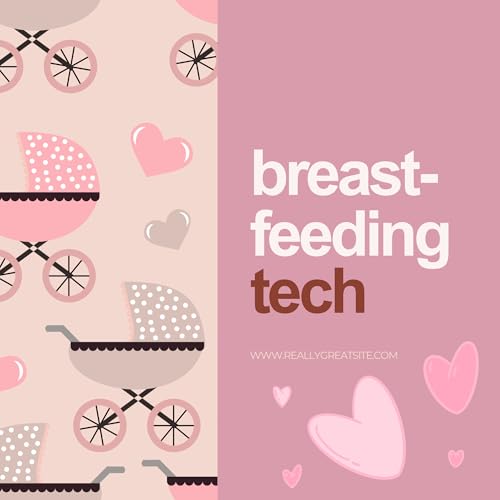
Breastfeeding 2.0: Innovations Making Milk Matters Easier
カートのアイテムが多すぎます
カートに追加できませんでした。
ウィッシュリストに追加できませんでした。
ほしい物リストの削除に失敗しました。
ポッドキャストのフォローに失敗しました
ポッドキャストのフォロー解除に失敗しました
-
ナレーター:
-
著者:
このコンテンツについて
The podcast dives deep into the often challenging yet profoundly personal experience of breastfeeding for modern parents, addressing a crucial question: can technology genuinely transform this experience for the better? With over 80% of breastfeeding mothers in the U.S. using breast pumps, the episode highlights the pressing need for innovation, particularly since many current models rely solely on suction, leading to discomfort and early cessation of breastfeeding. The discussion then shifts to groundbreaking advancements like the SmartLAC 8, a prototype that mimics the natural suckling of infants through a combination of suction and compression, showcasing how technology can align more closely with the needs of parents. Further, the hosts explore the role of digital tools and apps that alleviate the mental load associated with tracking breastfeeding logistics, ultimately aiming to create a supportive ecosystem for parents. As they wrap up, they stress the importance of ensuring these innovations are accessible and ethically designed, emphasizing that effective support for breastfeeding transcends mere technology and must encompass a holistic understanding of the diverse experiences parents face.
Exploring the intricate dynamics of modern breastfeeding, this episode navigates the often tumultuous waters that new parents face when it comes to feeding their infants. The speakers dive into the challenges surrounding breastfeeding, highlighting the overwhelming use of breast pumps among mothers in the U.S.—with a staggering 83.9% using them at some point. Yet, the conversation quickly turns to the pitfalls of traditional pumps, which primarily rely on suction, leading to physical discomfort and, in many cases, premature cessation of breastfeeding due to pain. The statistics presented are eye-opening, suggesting that 60% of mothers stop breastfeeding sooner than planned, a reality that underscores the urgent need for innovation in breastfeeding technologies. As they unpack the intersection of technology and parental needs, attention shifts toward groundbreaking advancements, such as the SmartLAC 8 pump, which mimics the natural suckling of an infant by employing both suction and compression. The episode unveils the potential of such innovations not only to alleviate physical discomfort but also to enhance the overall breastfeeding experience, encouraging a deeper connection between mother and child.
But it doesn’t stop there—this discussion also critically examines the broader societal implications of breastfeeding support. The speakers stress the importance of designing tech solutions that consider the diverse experiences of mothers, rather than merely serving public health objectives. They tackle the ethical considerations tied to access and affordability, emphasizing that while technological advancements are promising, they must be accessible to all to truly effect change. As the episode wraps up, listeners are encouraged to reflect on how the evolution of breastfeeding technology can pave the way for a more supportive landscape for parents, inviting them to consider what other facets of care might benefit from similarly thoughtful innovations.
Takeaways:
- The discussion emphasizes that technology can revolutionize breastfeeding experiences for modern parents by addressing practical challenges, which is essential for parental well-being.
- Over 60% of breastfeeding mothers in the US stop earlier than planned, often due to painful experiences with existing breast pumps, highlighting a critical area for innovation.
- Innovators are developing bio-inspired pumps like SmartLAC 8, which mimic infants' natural suckling behavior, thus aiming to enhance comfort and effectiveness for breastfeeding mothers.
- Mobile health applications are showing significant promise in increasing breastfeeding rates, self-efficacy, and even improving infants' health outcomes through better...



